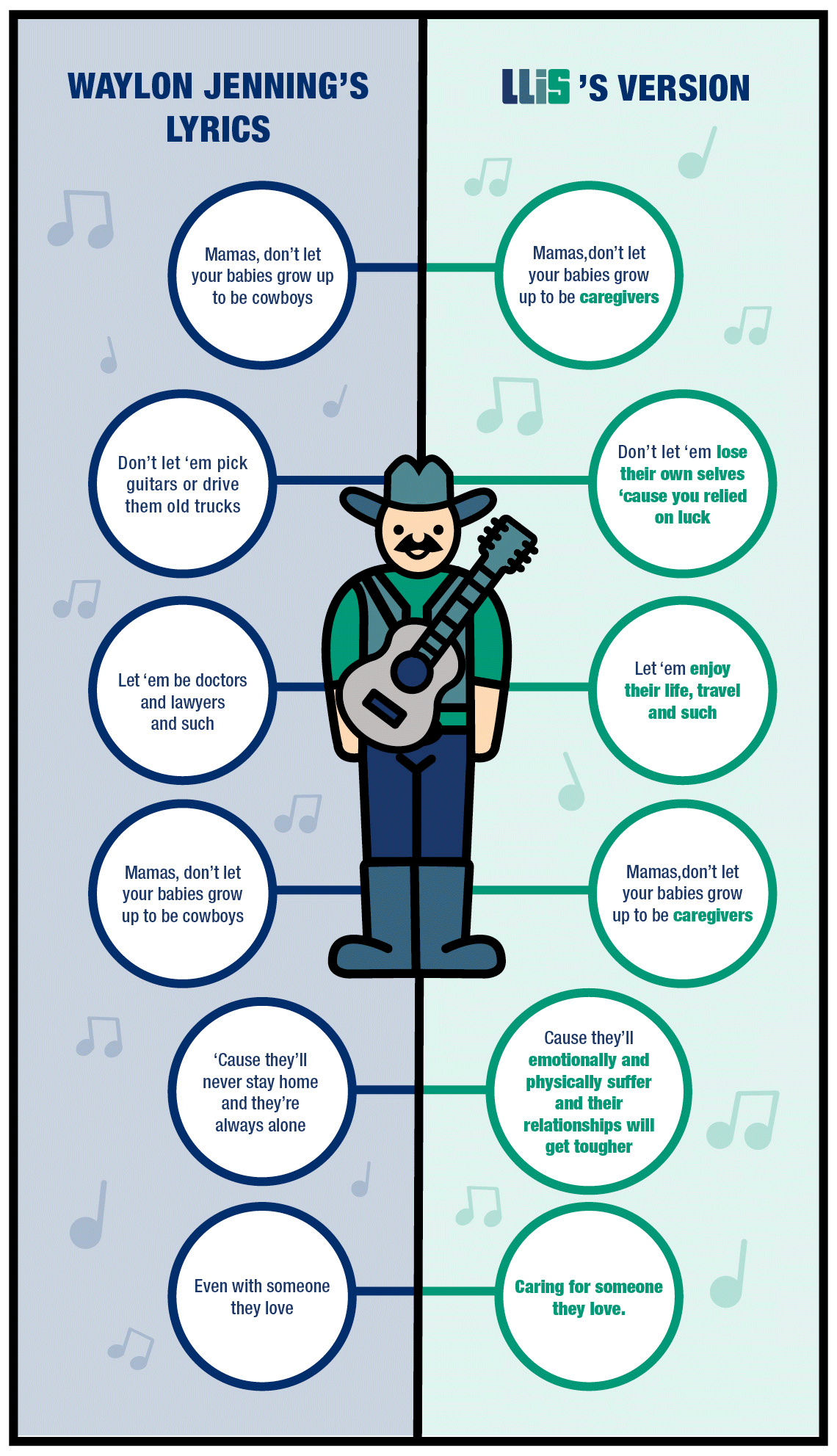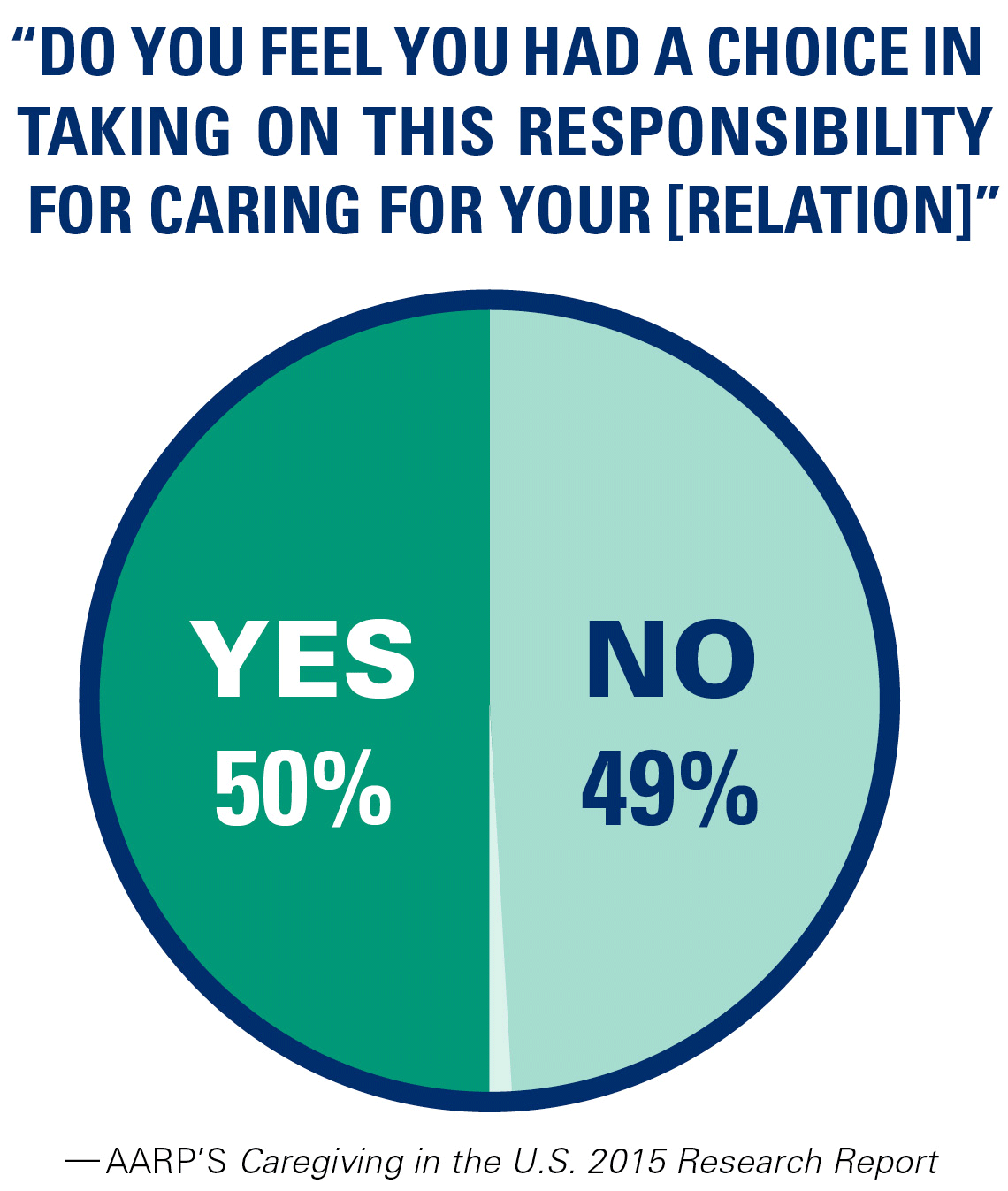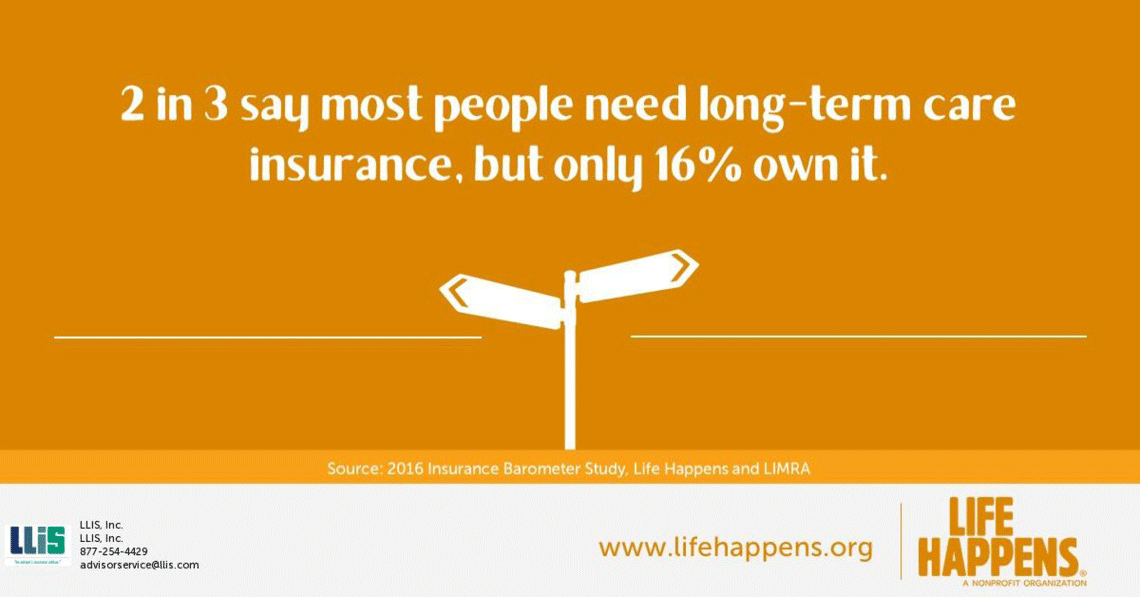ALLiS Login |
![]() (877) 254-4429
(877) 254-4429
ALLiS Login |
![]() (877) 254-4429
(877) 254-4429
FOURTH QUARTER 2017
NEWS YOU CAN USE FROM THE EXPERTS AT LLIS


It’s not just mamas. Papas also don’t want to be a burden on their loved ones.
And, yes, most children will say to their aging parents: "You're not a burden!" But the fact is, being a caregiver does place a burden on finances, jobs, relationships, and health and wellbeing.

Caring for can mean:
Caring about can mean:
Caregivers provide care for all sorts of people: a spouse or significant other, a friend, a neighbor, a child. And the statistics about that caregiving are staggering:
"My wife will take care of me." If you're in a client meeting with a husband/wife and he says that, here are some reality check talking points:
You may also want to share this with those clients:

The feeling of obligation (lack of choice) is especially pronounced among those caregivers who live with their care recipient and who provide more than 20 hours of care weekly (64% reported no choice).
Here are a few modern-day issues and solutions:
Care about your loved ones, not for them. That's good advice for both women and men.

SOLUTIONS AVAILABLE THROUGH LLIS
Term Life Insurance | Low-Load Universal Life (Individual & Survivorship) | No Lapse Guaranteed Univeral Life (Individual & Survivorship) | Long Term Care Insurance | Disability Insurance | Critical Care Insurance | Low-Load Variable Annuity | Immediate and Fixed Annuities | Low-Load Variable Universal Life | Hybrid Life/LTCi | Hybrid Annuity/LTCi
(We recommend low-load permanent life insurance and annuities when possible)
(Not all policy types available in all states)
For a list of current providers, visit the Advisor Tools section of our website and click on "Insurance Companies We Work With".